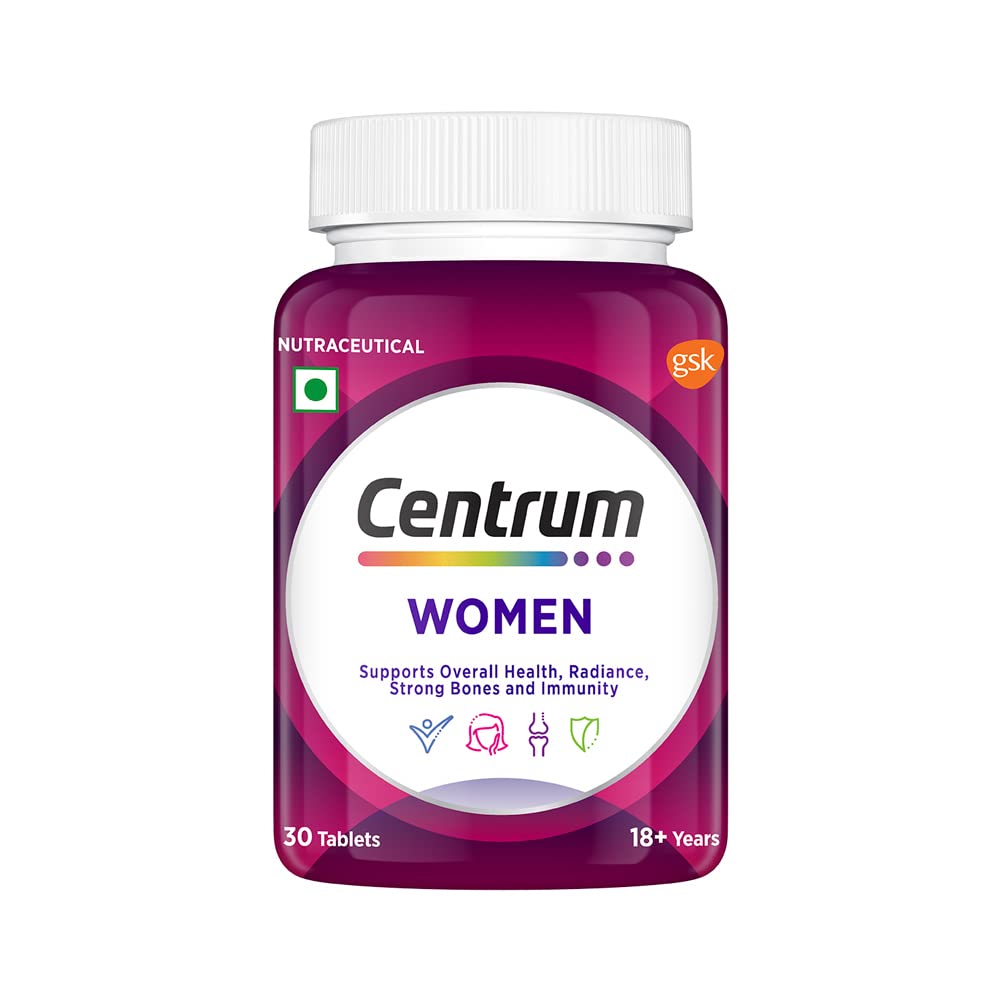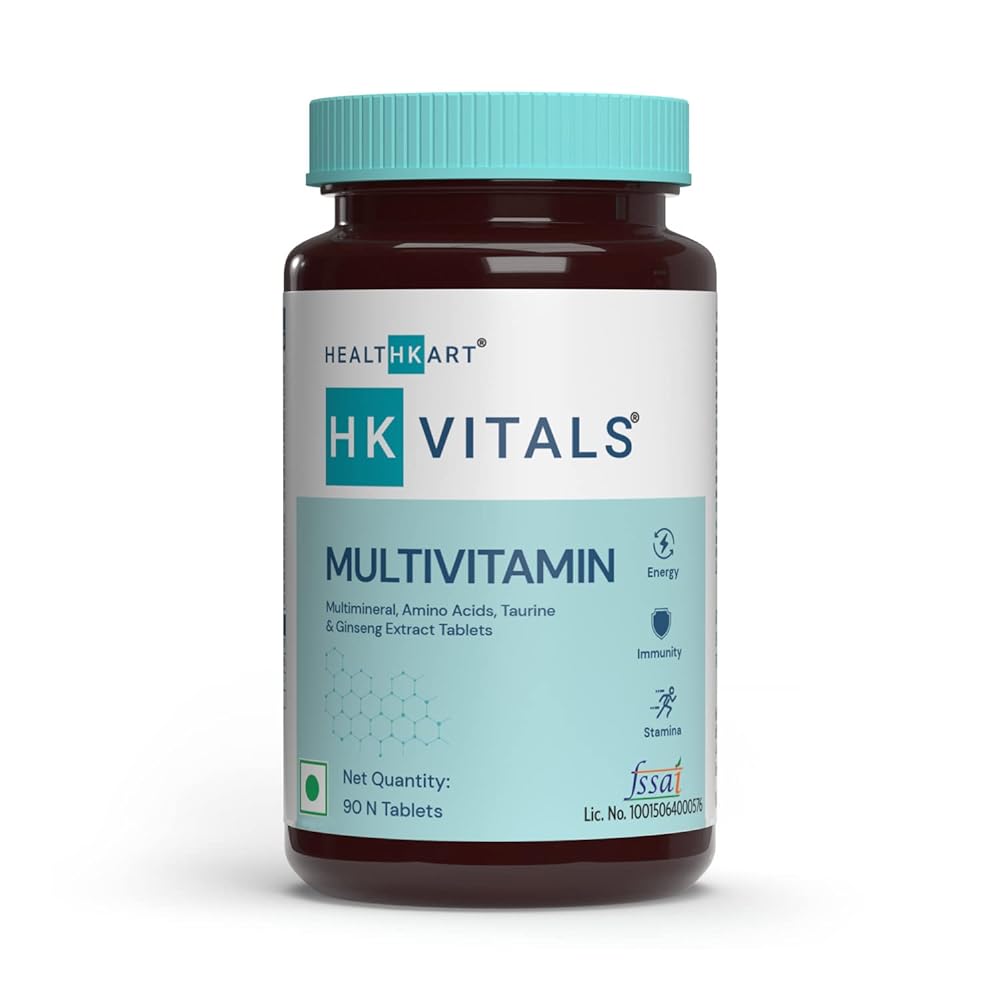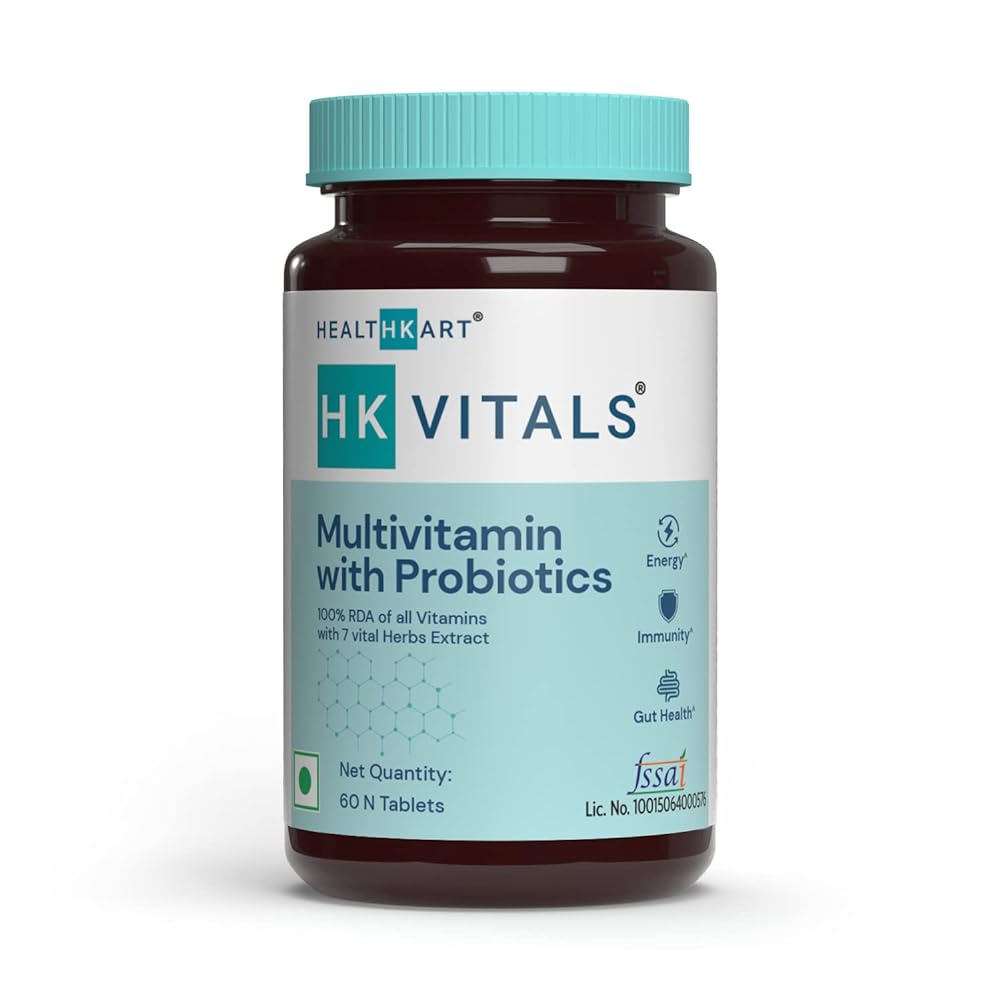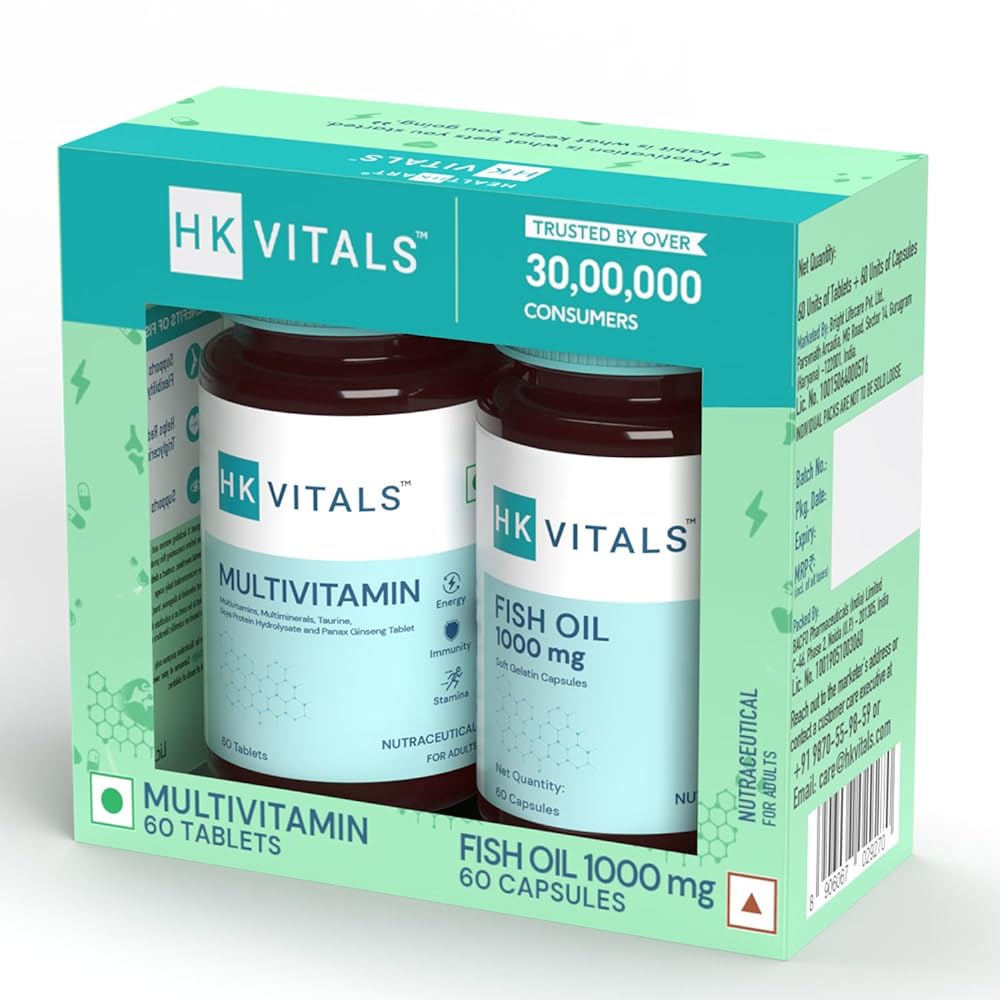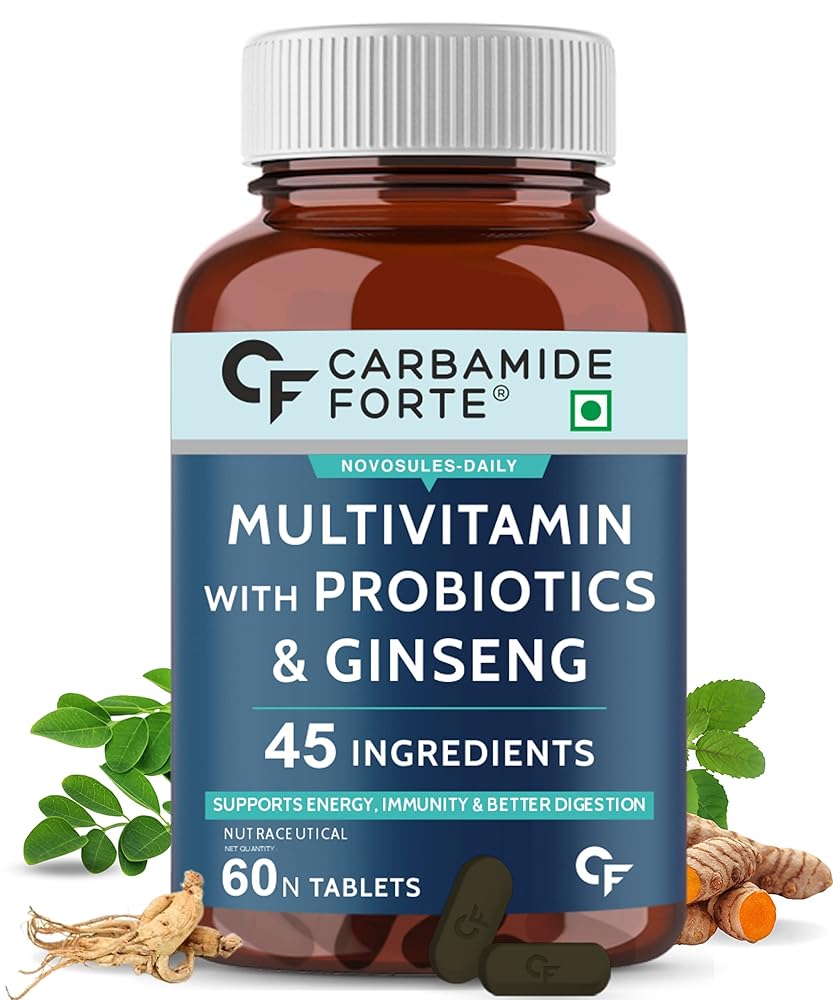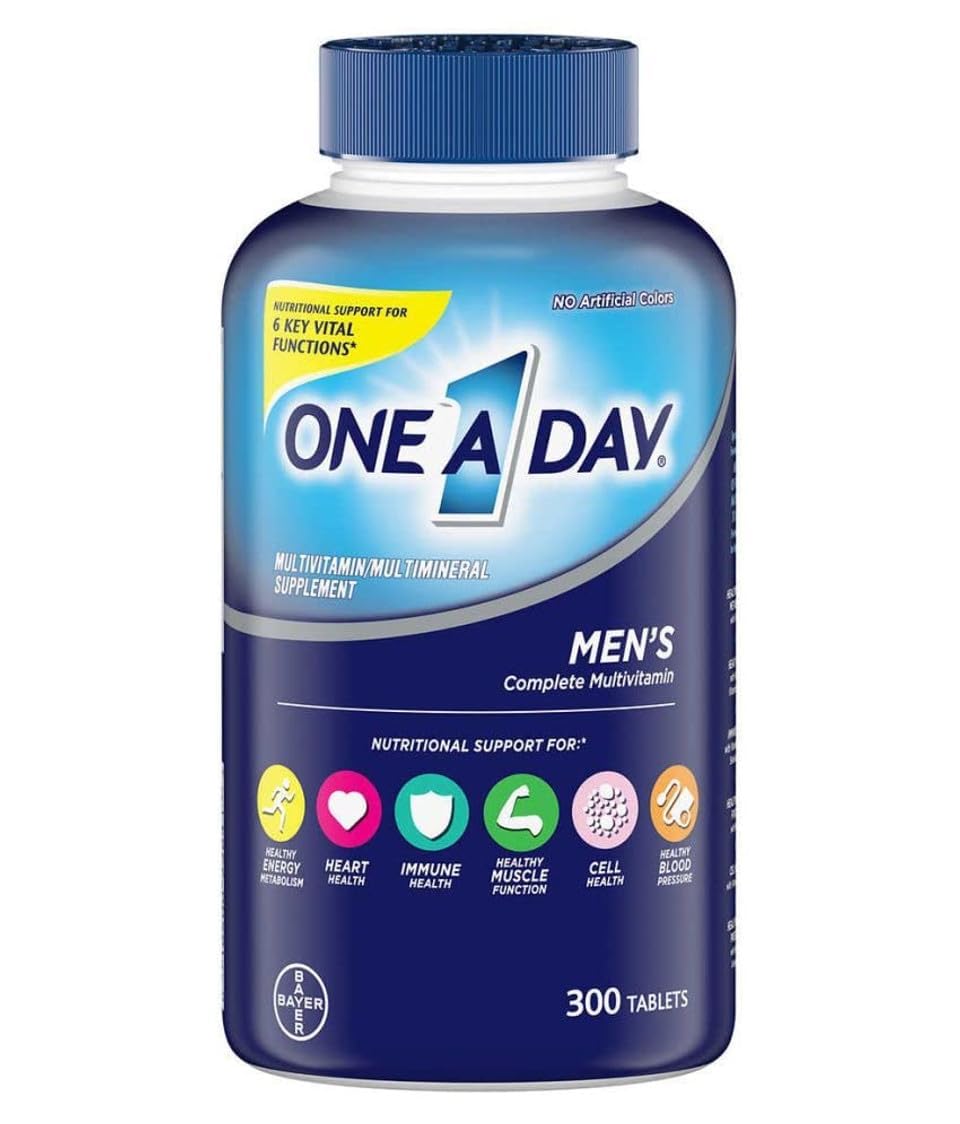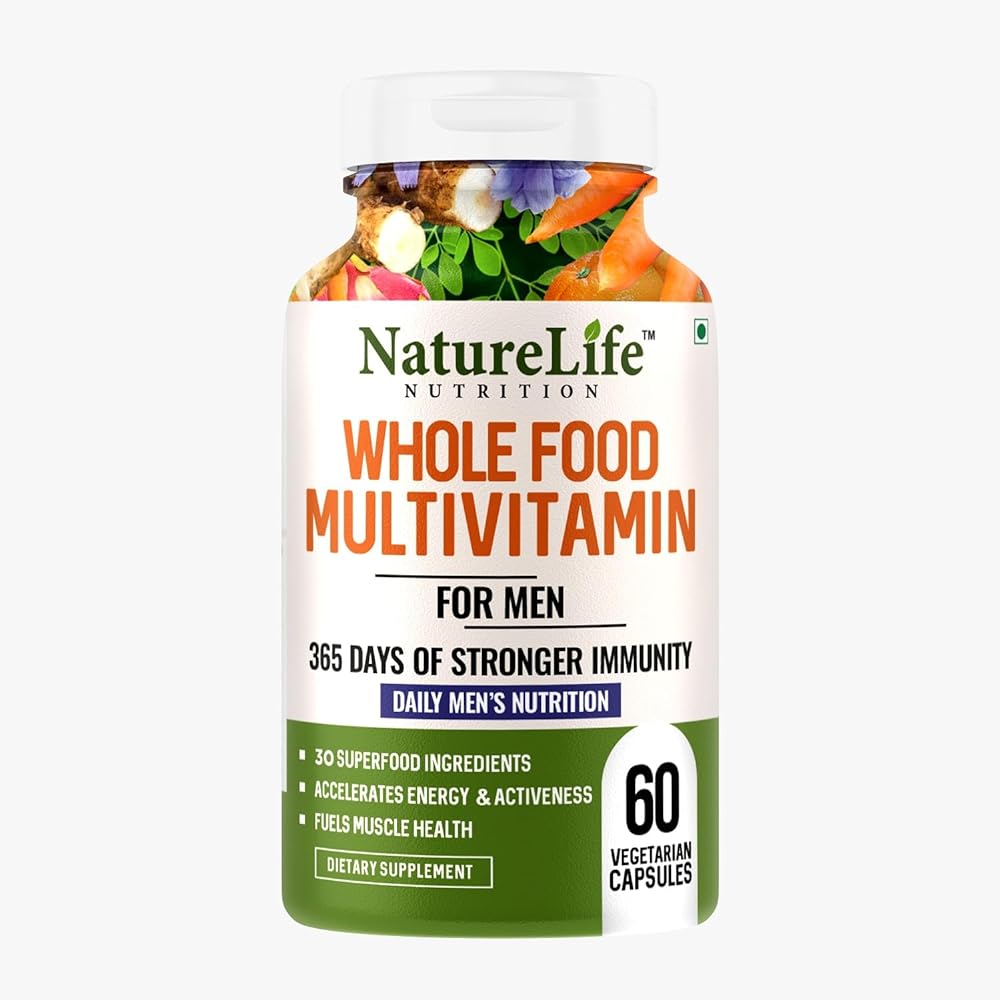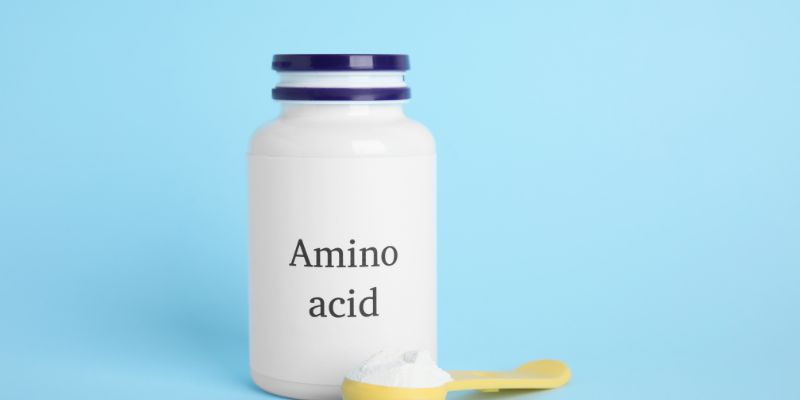Introduction
In the fast-paced whirlwind of modern life, maintaining a balanced diet can sometimes feel like an Olympic feat. Our schedules often leave little room for meticulous meal planning and the quest for that elusive nutritional perfection. This is where the humble multivitamin comes to the rescue, offering a convenient way to fill in the gaps and ensure your body gets the essential nutrients it needs.
But with the vast array of multivitamins lining store shelves and saturating online markets, how do you choose the best one for you? That’s precisely what we’re here to uncover in this comprehensive guide. As a seasoned dietitian, I’ve spent years dissecting labels, analyzing formulations, and keeping a vigilant eye on the latest nutritional research. Now, I’m ready to share my expertise with you.
In this article, we’ll delve deep into the world of multivitamins, demystifying the marketing jargon and providing you with the knowledge you need to make an informed decision. We’ll explore the key factors to consider when selecting a multivitamin, such as your unique dietary requirements, age, gender, and lifestyle.
By the time you finish reading, you’ll be armed with the tools to choose the best multivitamin tablets in India that perfectly complements your health goals and helps you embark on a journey towards a vibrant, well-nourished life. So, let’s begin this exciting exploration into the world of multivitamins and find the best one for you.

Our pick of the 7 best Multivitamin Tablets of 2024 in India
Zotezo Score | Best Multivitamin | Lowest Price |
|---|---|---|
|
B+ |
||
|
B |
||
|
B |
||
|
B |
||
|
B |
||
|
C+ |
||
|
C+ |
Let's take a deep dive into these 7 best Multivitamin in India
Best Overall Multivitamin in India
Maxcure Nutravedics Ltd.
B+
Zotezo review
The Centrum Women multivitamin is a top choice providing a comprehensive blend of essential nutrients, including Biotin and Vitamin C, to support overall health, radiance, strong bones, and immunity. The easy-to-swallow tablets with no aftertaste offer noticeable energy boosts, making it a user-friendly option packaged to support various health benefits. However, it may not be suitable for individuals with specific dietary restrictions, and some users might prefer a larger pack size for extended use.
Product details
Benefits of Centrum Women Multivitamin with ...
Drawbacks
BACFO PHARMACEUTICALS (India) Ltd.
B
Zotezo review
The HealthKart HK Vitals Multivitamin provides essential nutrients such as Ginseng extract, Taurine, amino acids, vitamins, and minerals to enhance energy, stamina, and immunity. While it offers clear benefits in these areas, more detailed information on gender-specific benefits and long-term effects would be helpful for potential buyers.
Product details
Benefits of HealthKart Vitals Multivitamin f...
Weaknesses
BACFO PHARMACEUTICALS (India) Ltd., C-46, Phase-2, Noida 201305, UP, India
B
Zotezo review
The HealthKart HK Vitals Multivitamin offers a comprehensive blend of essential vitamins and minerals, aiding in improving energy levels and supporting immunity for both men and women. However, some users may find the potency too strong, and the size of the tablets may pose a challenge for swallowing.
Product details
Benefits of HealthKart Vitals Multivitamin w...
Disadvantages
Titanium Technology Pvt. Ltd.
B
Zotezo review
The HealthKart HK Vitals Fish Oil and Multivitamin Combo offers a convenient blend of Omega 3 Fish Oil and Multivitamin supplements, with secure packaging and no fishy aftertaste. While some users may find the size of the capsules inconvenient, it provides good value for the price, enhancing energy, immunity, and joint health.
Product details
Benefits of HealthKart Fish Oil & Multiv...
Negatives
Novus Life Sciences Pvt. Ltd.
B
Zotezo review
The Carbamide Forte Multivitamin Tablets offer a comprehensive blend of antioxidants, probiotics, and ginseng for immune support and increased energy levels. While some users have reported mixed effectiveness and perceived low value, the product remains a viable option for those seeking improved overall health and vitality.
Product details
Benefits of Carbamide Forte Multivitamin Tab...
Cons
C+
Zotezo review
The DC One A Day Men’s Healthy Supplement (300 Tablets) offers a comprehensive daily multivitamin specifically tailored for men’s health needs, providing essential vitamins and minerals for long-term use. However, some users may find the large tablet size cumbersome and experience potential digestive discomfort.
Product details
Benefits of DC One A Day Men’s Supplement
Drawbacks
Mothersoul Pvt. Ltd.
C+
Zotezo review
The Nature Life Nutrition WholeFood Multivitamin for Men offers comprehensive support for overall well-being with antioxidants, energy boost, metabolism support, immune system enhancement, and improved muscle function. While some users may find the capsule size too large and the price point high, regular use yields effective results for daily multi-vitamin needs.
Product details
Benefits of Nature Life Men’s Multivit...
Weaknesses
Important Components of the Best Multivitamins
Now that we’re navigating the multivitamin landscape together, it’s time to spotlight the essential components that make a multivitamin truly outstanding. After all, it’s not just about having a pretty label or an enticing sales pitch – it’s about what’s inside that tiny pill bottle that counts. Let’s break down the important components to look for when choosing the best multivitamin for your needs.
1. Vitamins:
This might sound like a no-brainer, but the quality and quantity of vitamins in your multivitamin are paramount. These micro-nutrients play a variety of crucial roles in your body, from bolstering your immune system to supporting energy production. The key vitamins to seek out include A, C, D, E, K, and the B-complex vitamins (B1, B2, B3, B5, B6, B7, B9, and B12). Each of these vitamins has specific functions, and together, they act as an orchestra, ensuring your body functions at its best.
2. Minerals:
Multivitamins often team up with essential minerals to cover all the nutritional bases. Calcium, magnesium, zinc, selenium, and iron are among the most critical minerals you should look for. Calcium supports bone health, magnesium assists with muscle function and sleep, zinc aids in immune system maintenance, selenium acts as an antioxidant, and iron helps prevent anemia. The right balance of these minerals can contribute significantly to your overall well-being.
3. Antioxidants:
In our world filled with environmental pollutants and stressors, antioxidants are your body’s defenders. Vitamins C and E, along with the mineral selenium, are potent antioxidants that help neutralize harmful free radicals, reducing the risk of chronic diseases and aging. Ensuring your multivitamin contains these defenders can go a long way in promoting longevity and vitality.
4. Folate and Folic Acid:
Folate (the natural form of vitamin B9) and folic acid (its synthetic counterpart) are crucial for cellular function and DNA synthesis. They’re particularly vital during pregnancy to prevent birth defects, but they’re also essential for everyone’s daily health. Look for a multivitamin that provides an adequate dose of folate/folic acid, especially if you’re of childbearing age or pregnant.
5. Trace Elements:
Some multivitamins go the extra mile by including trace elements like chromium, manganese, and copper. While needed in smaller quantities, these elements are still important for various metabolic processes in your body.
6. Additional Nutrients:
Depending on your specific needs, consider multivitamins that contain extras like omega-3 fatty acids (for heart and brain health), probiotics (for gut health), and herbal extracts (for added immune support). These can be beneficial if you’re looking for a more tailored approach to your supplementation.
Now, let’s delve into the major vitamins and their recommended dietary allowances (RDAs). Understanding the role of each vitamin and how much you need daily is vital for choosing the best multivitamin to meet your nutritional requirements. Here’s a concise table to help you navigate the world of vitamins:
| Vitamin | Function | RDAs (for Adults) | Best Food Sources |
|---|---|---|---|
| Vitamin A | Supports vision, immune system, and skin health | 900 micrograms (mcg) for men 700 mcg for women |
Sweet potatoes, carrots, spinach, liver |
| Vitamin C (Ascorbic Acid) | Antioxidant, aids in wound healing, and boosts immune function | 90 milligrams (mg) for men 75 mg for women |
Citrus fruits, strawberries, bell peppers |
| Vitamin D | Promotes bone health and supports immune function | 600 International Units (IU) for adults (19-70 years) 800 IU for adults (71+ years) |
Fatty fish (salmon, mackerel), fortified dairy products |
| Vitamin E (Tocopherol) | Antioxidant, protects cells from damage | 15 milligrams (mg) for adults | Almonds, sunflower seeds, spinach |
| Vitamin K | Essential for blood clotting and bone health | 120 micrograms (mcg) for men 90 mcg for women |
Leafy greens (kale, spinach), broccoli |
| Vitamin B1 (Thiamine) | Helps convert food into energy and supports nerve function | 1.2 milligrams (mg) for men 1.1 mg for women |
Pork, enriched cereals, legumes |
| Vitamin B2 (Riboflavin) | Involved in energy production and helps maintain healthy skin | 1.3 milligrams (mg) for men 1.1 mg for women |
Milk, eggs, leafy greens |
| Vitamin B3 (Niacin) | Supports metabolism and cardiovascular health | 16 milligrams (mg) for men 14 mg for women |
Chicken, fish, peanuts |
| Vitamin B5 (Pantothenic Acid) | Involved in energy metabolism and hormone production | 5 milligrams (mg) for adults | Meats, avocados, whole grains |
| Vitamin B6 (Pyridoxine) | Supports brain development, nerve function, and metabolism | 1.3 milligrams (mg) for adults | Poultry, fish, bananas |
Tips for choosing the right Multivitamin Tablets for you
Choosing the best multivitamin can feel like a daunting task in today’s supplement-saturated market. With countless brands, formulations, and marketing claims vying for your attention, how do you make an informed decision?
In this comprehensive buyer’s guide, we’ll empower you with the knowledge and tools needed to select the right multivitamin for your unique health needs and preferences. So, let’s embark on this journey together and uncover the key considerations that will lead you to the best multivitamin in India.
1. Identify Your Individual Health Goals and Needs:
Before you start shopping for a multivitamin, it’s essential to clarify your specific health goals and dietary requirements. Consider the following factors:
- Age: Different life stages have distinct nutrient needs. Are you a child, teenager, adult, or senior?
- Gender: Men and women may have varying nutritional requirements. Are you looking for a multivitamin tailored to your gender?
- Dietary Preferences: Are you a vegetarian, vegan, or omnivore? Dietary choices can impact which nutrients you may need to supplement.
- Health Conditions: Do you have any medical conditions that require additional nutrients? For example, pregnant women may need more folic acid, while individuals with osteoporosis may require extra calcium and vitamin D.
- Lifestyle: Are you an athlete or someone with a physically demanding job? Active individuals may benefit from multivitamins formulated for their needs.
By understanding your unique health circumstances, you can narrow down your choices and select a multivitamin that aligns with your goals.
2. Read the Label:
The supplement label is your window into the multivitamin’s composition and quality. Here’s what to look for:
- Nutrient Content: Check the levels of vitamins and minerals provided. Ensure that the multivitamin contains key nutrients like vitamins A, C, D, E, K, B vitamins (B1, B2, B3, B5, B6, B7, B9, B12), calcium, iron, magnesium, zinc, and selenium. The amounts should generally meet or be close to the Recommended Dietary Allowances (RDAs) or Adequate Intakes (AIs) for your age and gender.
- Form and Absorbability: Consider the form of nutrients used. Some formulations use more bioavailable forms of vitamins and minerals, which are easier for your body to absorb. For instance, look for vitamin D3 (cholecalciferol) over vitamin D2 (ergocalciferol) for better absorption.
- Fillers and Additives: Check for unnecessary additives, fillers, and preservatives. High-quality multivitamins typically contain minimal additional ingredients.
- Allergens and Dietary Preferences: Ensure the multivitamin is free of any ingredients to which you may be allergic or sensitive. Vegetarians and vegans should also look for labels indicating plant-based sources of nutrients.
3. Quality Matters:
Not all multivitamins are created equal. Quality and safety are paramount. Consider the following:
- Reputable Brands: Choose multivitamins from well-established and reputable manufacturers. Look for brands that undergo third-party testing for quality and purity.
- USP Verified or NSF Certified: Some multivitamins carry third-party certifications, such as the United States Pharmacopeia (USP) or NSF International, which attest to their quality and adherence to safety standards.
- Expiration Date: Check the expiration date to ensure the multivitamin remains effective until you finish the bottle.
4. Formulation and Special Features:
Multivitamins can come in various formulations to cater to specific needs:
- Standard Multivitamins: These provide a broad spectrum of essential vitamins and minerals suitable for most adults. They often contain 100% of the DV for most nutrients.
- Prenatal Multivitamins: Designed for expectant mothers, these provide higher levels of folic acid, iron, and other nutrients crucial for a healthy pregnancy.
- Gender-Specific Multivitamins: Tailored to the nutritional requirements of men and women. Men’s formulas may contain nutrients that support prostate health, while women’s formulas may include more iron and calcium.
- Senior Multivitamins: Formulated to address the needs of older adults, including higher levels of vitamin D and calcium for bone health.
- Athlete’s Multivitamins: These provide additional nutrients like B vitamins, vitamin C, and zinc to support energy metabolism and muscle function.
- Vegetarian and Vegan Multivitamins: Designed for those following plant-based diets and often contain nutrients that can be lacking in such diets, like vitamin B12, iron, and calcium.
- Gummy Multivitamins: Ideal for those who have trouble swallowing pills, but be mindful of added sugars and potential nutrient gaps.
- Whole Food Multivitamins:Derived from whole food sources, offering nutrients in a more natural form.
- Targeted Multivitamins: Address specific health concerns, such as hair and nail health, eye health, or stress support. These often contain additional herbal extracts and specialty nutrients.
5. Dosage and Timing:
Follow the recommended dosage on the product label, and take your multivitamin with a meal for better absorption and to minimize digestive discomfort. Keep in mind that more is not always better, and excessive intake can lead to nutrient imbalances or toxicity.
6. Consult a Healthcare Professional:
If you have underlying health conditions, take medications, or have specific concerns about nutrient interactions, consult with a healthcare provider or registered dietitian before starting any new supplement regimen. They can provide personalized guidance based on your health history.
7. Price and Value:
Consider the cost per serving when comparing multivitamins. Sometimes, higher-priced options offer better quality and more bioavailable forms of nutrients, making them a better value in the long run.
Products listed here are carefully reviewed and tested by our expert authors and reviewers. If you buy through links on this page, we may earn a small commission. Here’s our editorial process.
How we reviewed these products
Advantages of using Multivitamin Tablets
Multivitamins have long been a subject of debate in the world of nutrition. Some swear by them as an essential daily supplement, while others question their necessity. So, do you really need a multivitamin, and if so, what benefits can you expect? In this comprehensive guide, we’ll explore the myriad advantages of incorporating the right multivitamin into your daily routine. But first, let’s debunk a common myth:
Myth: Multivitamins are a Substitute for a Healthy Diet
Before diving into the benefits, it’s crucial to clarify one thing: multivitamins are not a replacement for a balanced diet. They can’t magically undo the effects of a consistently poor eating pattern. The best way to obtain essential nutrients is through a varied diet rich in whole foods like fruits, vegetables, whole grains, lean proteins, and healthy fats. Multivitamins are meant to complement your diet by filling in potential nutrient gaps, especially when dietary intake falls short. With that in mind, let’s explore the many ways multivitamins can support your health:
1. Filling Nutritional Gaps:
The most obvious benefit of multivitamins is their ability to provide essential vitamins and minerals that may be lacking in your diet. Many people struggle to meet their daily nutritional needs due to busy lifestyles, dietary restrictions, or limited food choices. A high-quality multivitamin can help ensure you’re not missing out on vital nutrients like vitamin D, calcium, magnesium, and more.
2. Boosting Immune Health:
A robust immune system is your body’s first line of defense against infections and illnesses. Multivitamins have vitamin C, vitamin D, Zinc, and selenium that can help strengthen your immune response. These nutrients support the production and function of immune cells, enhancing your ability to ward off pathogens.
3. Enhancing Energy Levels:
Do you often feel fatigued or lacking in energy? B vitamins, including B1 (thiamine), B2 (riboflavin), B3 (niacin), B5 (pantothenic acid), B6 (pyridoxine), and B12 (cobalamin), play a vital role in energy metabolism. A multivitamin with these B vitamins can help convert the food you eat into energy, combating fatigue and boosting your vitality.
4. Supporting Heart Health:
Heart disease remains a leading cause of death worldwide. Multivitamins containing antioxidants like vitamins C and E, as well as minerals like Magnesium and potassium, can contribute to cardiovascular health by reducing oxidative stress, regulating blood pressure, and supporting healthy blood vessels.
5. Promoting Bone Health:
Calcium, vitamin D, and vitamin K are essential for strong and healthy bones. These nutrients work together to enhance calcium absorption, maintain bone density, and prevent conditions like osteoporosis. A multivitamin containing these bone-loving nutrients can be especially beneficial for older adults at risk of bone-related issues.
6. Improving Skin, Hair, and Nails:
Who doesn’t want radiant skin, lustrous hair, and strong nails? Vitamin A, C, E, and biotin (a B vitamin) are known for their skin-enhancing and hair-strengthening properties. They help protect against environmental damage and support the production of collagen, a protein vital for skin elasticity.
7. Reducing the Risk of Birth Defects:
For expectant mothers, folic acid (a synthetic form of folate) is a crucial nutrient that can reduce the risk of neural tube defects in their babies. It’s recommended that women of childbearing age take a prenatal multivitamin with adequate folic acid to ensure they’re prepared for pregnancy.
8. Combating Nutrient Loss with Age:
As we age, our bodies may become less efficient at absorbing certain nutrients, leading to deficiencies. A multivitamin designed for older adults can help compensate for these age-related changes, supporting cognitive function, bone health, and overall vitality.
Types of Multivitamins and Their Relevant Benefits:
Now that we’ve explored the general benefits of multivitamins, it’s important to note that not all multivitamins are created equal. Different types cater to specific needs and age groups. Let’s break down some common types of multivitamins and their relevant benefits:
1. General Multivitamins: These are your everyday, all-purpose multivitamins suitable for most adults. They typically contain a broad spectrum of essential vitamins and minerals to address common nutrient gaps and support overall health.
2. Prenatal Multivitamins: Designed for expectant mothers, prenatal multivitamins provide extra folic acid, iron, and other nutrients crucial for a healthy pregnancy. They reduce the risk of birth defects and support the developing fetus.
3. Men’s and Women’s Multivitamins: These formulations are tailored to the specific nutritional needs of men and women. Men's multivitamins may contain higher doses of certain nutrients like selenium and lycopene to support prostate health, while women's multivitamins may include more iron and calcium to address their unique requirements.
4. Senior Multivitamins: As we age, our nutrient needs change. Senior multivitamins often have higher levels of vitamin D, calcium, and B vitamins to support bone health, energy, and cognitive function in older adults.
5. Athlete’s Multivitamins: Active individuals may benefit from multivitamins that include additional nutrients like vitamin B12, magnesium, and zinc to support energy production, muscle function, and recovery.
6. Vegetarian and Vegan Multivitamins: These cater to individuals who follow plant-based diets. They typically include vitamin B12, iron, and sometimes omega-3 fatty acids, which can be harder to obtain from plant sources.
7. Children’s Multivitamins: Designed for kids, these formulations are usually available in fun, chewable forms. They provide essential nutrients for growth and development, including Calcium, vitamin D, and Iron.
8. Gummy Vitamins: Gummy multivitamins are a popular choice for those who have trouble swallowing pills. However, they may contain added sugars and lack certain minerals, so it’s essential to choose high-quality gummies with balanced formulations.
9. Whole Food Multivitamins: These multivitamins are derived from whole food sources, offering nutrients in a more natural form. They’re an excellent option for those seeking minimally processed supplements.
10. Targeted Multivitamins: Some multivitamins address specific health concerns, such as hair and nail health, eye health, or stress support. These formulations often contain additional herbal extracts and specialty nutrients.
Disdvantages of using Multivitamin
Multivitamins are often touted as a simple solution to enhance your health by filling in nutrient gaps. While they can indeed offer a wide array of benefits, it’s essential to be aware of potential side effects and considerations. In this informative guide, we’ll delve into the less glamorous side of multivitamins, helping you make an informed decision about their use.
1. Digestive Issues:
One of the most common side effects of multivitamins is digestive discomfort. Some people may experience nausea, upset stomach, or even Diarrhea when taking certain multivitamins, especially if they contain high doses of certain minerals like iron or magnesium. To minimize these effects, take your multivitamin with food, which can help with absorption and reduce stomach irritation.
2. Vitamin Overload:
While vitamin deficiencies can be detrimental to health, excessive intake of certain vitamins can also be harmful. Fat-soluble vitamins like A, D, E, and K are stored in the body, and taking them in large doses over an extended period can lead to toxicity. Symptoms of vitamin toxicity can range from mild, such as nausea and headache, to severe, potentially causing organ damage.
3. Interactions with Medications:
Multivitamins can interact with medications you may be taking. For instance, vitamin K can interfere with blood thinners, while calcium can reduce the absorption of some antibiotics. Always consult with your healthcare provider to ensure there are no potential conflicts between your medications and multivitamins.
4. Iron-Related Issues:
Iron is a critical mineral, but too much iron from supplements can be problematic, especially for men and postmenopausal women who don’t need as much iron as premenopausal women. Excess iron can lead to constipation, nausea, and in severe cases, iron toxicity. If you’re considering an iron-containing multivitamin, make sure it’s appropriate for your age and gender.
5. Allergic Reactions:
Some individuals may be sensitive or allergic to certain ingredients in multivitamins. Be sure to check the ingredient list for any potential allergens or sensitivities. If you experience symptoms like itching, swelling, or difficulty breathing after taking a multivitamin, discontinue use and seek medical attention immediately.
6. Imbalance of Nutrients:
While multivitamins aim to provide a balance of nutrients, it’s essential to remember that they can’t replicate the complexity of nutrients found in whole foods. Over-reliance on multivitamins may lead to an imbalance of nutrients and potentially affect your overall health.
7. Quality Concerns:
Not all multivitamins are created equal. Quality can vary widely between brands, and some may contain impurities or inaccurate labeling. To ensure you’re getting a safe and effective product, choose multivitamins from reputable manufacturers that undergo third-party testing for quality and purity.
8. Nutrient Competition:
Certain vitamins and minerals can compete for absorption in the body. For example, taking high doses of calcium with iron may reduce the absorption of both minerals. To avoid nutrient competition, consider spacing out the timing of your multivitamin with other supplements or dietary sources.
9. Over-Reliance on Supplements:
A multivitamin should complement a healthy diet, not replace it. Relying solely on supplements may lead to neglecting the importance of a diverse and balanced diet. Whole foods offer a plethora of nutrients, fiber, and phytochemicals that supplements can’t replicate.
Recommended Dosage of Multivitamin
The recommended dosage for multivitamins can vary depending on the specific product and the individual’s nutrient needs. It is recommended to follow the instructions on the label and not exceed the recommended dosage.
The recommended daily allowance (RDA) for vitamins and minerals can also vary depending on age, gender, and pregnancy status. The RDA is the amount of a nutrient sufficient to meet the needs of most healthy individuals in a specific period and gender group.
| Population Group | Recommended Multivitamin Dosage | Vitamins and Minerals to Focus On |
|---|---|---|
| General Adults | Standard multivitamin providing 100% DV* | Vitamin A, Vitamin C, Vitamin D, Vitamin E, Vitamin K, B Vitamins (Thiamine, Riboflavin, Niacin, Pantothenic Acid, Pyridoxine, Biotin, Folate, B12), Iron, Calcium, Magnesium, Zinc |
| Children | Follow specific dosage on product label based on age | Age-appropriate vitamins and minerals tailored for growth and development |
| Pregnant and Lactating Women | Prenatal multivitamin with healthcare provider guidance | Folic Acid, Iron, Calcium, Vitamin D, Vitamin B6, Vitamin B12 |
| Seniors | Senior-specific multivitamin designed for age-related needs | Vitamin D, Calcium, B Vitamins (B6, B12), Vitamin K, Magnesium |
| Athletes | Athlete-specific multivitamin with healthcare provider guidance | B Vitamins (B1, B2, B3, B5, B6, B12), Vitamin C, Vitamin E, Iron, Zinc |
| Vegetarians and Vegans | Vegetarian or vegan multivitamin tailored to dietary preferences | Vitamin B12, Iron, Calcium, Iodine, Zinc |
Understand the who, what & why behind your favourite products
Brand Values | Product Philosophy | Product USPs
Read brand stories, their raison-d'etre, and understand what drives them to caringly create the highest quality products for your well-being.
Brand stories
Frequently asked questions on Multivitamin Tablets
1. Can multivitamins replace a healthy diet?
2. Do multivitamins have interactions with medications?
3. Can multivitamins cause weight gain?
4. Can children take multivitamins?
5. Can multivitamins be harmful?
Expert reviews you can rely upon
Expert Insights | Product Reviews | Connect with Experts
Gain valuable insights and read unbiased product reviews by subject matter Experts on Zotezo, the ultimate trust commerce platform, that empowers millions globally to make informed decisions for their wellbeing.
Expert Advisory
Conclusion
In the quest for optimal health, multivitamins can be valuable allies, helping us fill nutritional gaps, bolster our immune systems, and support our overall well-being. However, as with any journey, the path to selecting the best multivitamin in India requires thoughtful consideration and informed choices.
We’ve explored the key factors to keep in mind when choosing a multivitamin, from understanding your individual health needs and reading labels to assessing quality, formulation options, and dosage recommendations. By arming yourself with knowledge and seeking guidance from healthcare professionals, you can confidently embark on your multivitamin journey, knowing that you’re making choices that align with your health goals.
Remember that multivitamins should complement, not replace, a balanced diet rich in whole foods. Whole foods provide a symphony of nutrients, fiber, and health-promoting compounds that no supplement can replicate.
Your health is a personal journey, and we hope this guide has been a valuable companion along the way. Your feedback is important to us. Have you found the information helpful? Is there anything else you’d like to know about multivitamins or nutrition in general? We’re here to support your quest for better health, so please share your thoughts, questions, and suggestions with us. Together, we can continue to explore the world of nutrition and make informed choices for a healthier future.

